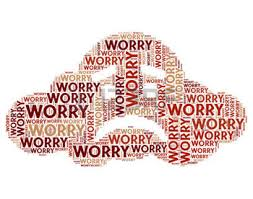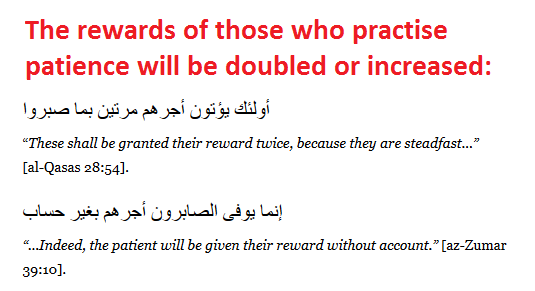One day, Hanzala al Usaidi* (r.a.*) said to his friend Abu Bakr (r.a.), “Abu Bakr, I have become a hypocrite!” 
“A’udhubillaahi minash shaytaanir rajeem*! Why are you saying this?” Abu Bakar was shocked.
“Wallaahi*,” Hamzala continued, “When I am in the presence of the Prophet ﷺ * or when we are listening to the Quran from his mouth, or when he reminds us of Jannah*, I feel motivated and energised and inspired! 
When he reminds us of Naar*, I feel fear and aim to be extra careful in my actions. But the moment I reach home after the gathering, when I meet my wife and children, or when I go back to work after the gathering, I feel different! I often get busy and forget about the matters of Akhirah*. I can’t recognise my own heart anymore!”

Abu Bakr said, “You’re right. This is a problem. I feel the same way too! That makes the two of us. We’re both hypocrites! Oh no. Let’s go ask the Prophet!”
So, off they both went to see the Prophet ﷺ straight away. They knew that the Prophet was the best teacher they ever had and nobody else could answer them in the best way possible.
After listening to their query, Prophet Muhammad ﷺ replied, “By Allah*, Hamzala, if you had the same feelings when you are here with me and when you are with your family or when you are at work, the angels in the streets would want to shake hands with you! Why? Because your level of Imaan* is so great. And it is consistent too. (Masha Allah. TabarakAllah. Wow. That would be amazing, wouldn’t it? SubhnanAllah*.) The angels would turn up in broad daylight to come shake hands with you.” 
“But (let’s try being realistic here)… An hour and an hour.”**
Hmmm…
“An hour and an hour”?
What does the Prophet ﷺ mean by “an hour and an hour”?
This means that we can put aside an ‘hour’ for our heart’s matters and its purification or cleaning process. And we can put aside another ‘hour’ for our dunya* matters or even entertainment. 
It does not mean that we can do one hour of good deeds and one hour of bad deeds. For example, we spend one hour listening to an Islamic lecture and we spend one hour at the club or pub, dancing, drinking, singing karaoke or gambling. No! That’s not what the Prophet ﷺ meant.
What the Prophet ﷺ meant by the dunya matters was that we have to attend to the necessary and important things that we do for our body, mind and life like eat, drink, go to the bathroom, go to work or school, clean the house, cook, ride the train or car or other vehicle, etc. 
As for entertainment, we could perhaps read a book, watch a Halal* movie, play a video game, go for a walk, go shopping, spend quality time with your parents or grandparents, enjoy moments with your siblings or cousins or aunties or uncles, sew, paint, fish, solving puzzles, visit friends, etc… There are numerous other Halal dunya activities and Halal entertainment activities that we can do. Can you name one more?

Don’t you just love Islam? Islam is perfect. It teaches us to be balanced. Alhamdulillah*.
.
.
.
.
.















 When the Prophet (s.a.w.) observed a fast, he usually broke it with milk and dates. And in the early hours of the night, he would take some simple food for his suhoor.
When the Prophet (s.a.w.) observed a fast, he usually broke it with milk and dates. And in the early hours of the night, he would take some simple food for his suhoor. One day, Anas knew that the Prophet (s.a.w.) was fasting; so he arranged for his iftar*. Anas kept the milk and dates ready. However, at the time of iftar, the P
One day, Anas knew that the Prophet (s.a.w.) was fasting; so he arranged for his iftar*. Anas kept the milk and dates ready. However, at the time of iftar, the P Soon, be that as it may, the Prophet entered the house with another companion. Anas asked the companion discreetly whether the Prophet (s.a.w.) had already eaten.
Soon, be that as it may, the Prophet entered the house with another companion. Anas asked the companion discreetly whether the Prophet (s.a.w.) had already eaten. Anas felt so ashamed! There was no food left that he could offer to the Prophet if he (s.a.w.) asked for food. There was no more milk either. Anas waited expectantly, ready to explain the situation to the Prophet.
Anas felt so ashamed! There was no food left that he could offer to the Prophet if he (s.a.w.) asked for food. There was no more milk either. Anas waited expectantly, ready to explain the situation to the Prophet. What the Prophet did was remarkable. He behaved as if he were not hungry at all and went without supper with a cheerful face.
What the Prophet did was remarkable. He behaved as if he were not hungry at all and went without supper with a cheerful face.

 A busy man was walking by the building when he saw the boy. The man stopped, thinking for a moment. He took a few coins from his pocket and dropped them into the hat. He then took the sign, turned it around, and wrote some words on it. He put the sign back in such a way that everyone who walked by would be able to see the new words.
A busy man was walking by the building when he saw the boy. The man stopped, thinking for a moment. He took a few coins from his pocket and dropped them into the hat. He then took the sign, turned it around, and wrote some words on it. He put the sign back in such a way that everyone who walked by would be able to see the new words. Soon the hat began to fill up quite quickly. A lot more people were giving money to the blind boy.
Soon the hat began to fill up quite quickly. A lot more people were giving money to the blind boy. Of course both signs told people that the boy was blind. But the first sign simply said the boy was blind. The second sign told people they were so blessed that they were not blind. Should we be surprised that the second sign was more effective?
Of course both signs told people that the boy was blind. But the first sign simply said the boy was blind. The second sign told people they were so blessed that they were not blind. Should we be surprised that the second sign was more effective?


